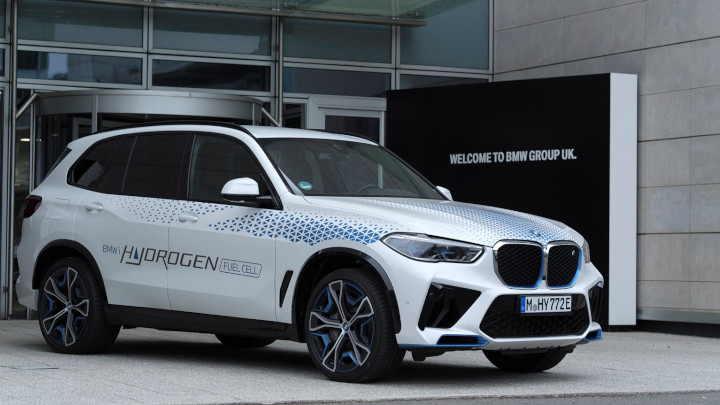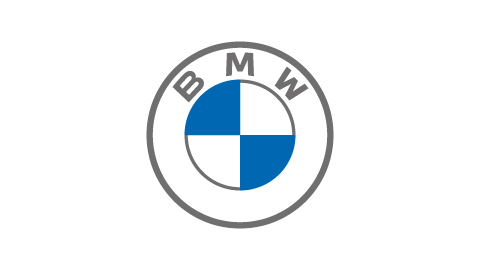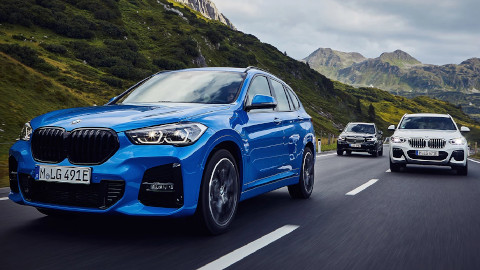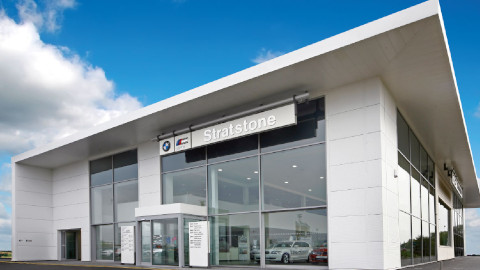BMW is bringing some of its hydrogen-powered iX5 cars to the UK as part of a European initiative to evaluate the vehicles in real world conditions.
After four years of development work, the BMW iX5 Hydrogen vehicle is entering a critical phase as the first vehicles join a pilot fleet of under 100 vehicles.
The vehicles are being deployed internationally for demonstration and trial purposes across Europe and in Britain.
This active driving experience will be the first chance for people not involved in the development process to gain a direct impression of what the BMW iX5 Hydrogen has to offer.
“Hydrogen is a versatile energy source that has a key role to play in the energy transition process and therefore in climate protection. After all, it is one of the most efficient ways of storing and transporting renewable energies”, said Oliver Zipse, chairman of the board of management of BMW AG.
“We should use this potential to also accelerate the transformation of the mobility sector. Hydrogen is the missing piece in the jigsaw when it comes to emission-free mobility. One technology on its own will not be enough to enable climate-neutral mobility worldwide.”
The BMW iX5 Hydrogen is based on the current BMW X5 SUV and was first unveiled as a concept at the IAA show at Frankfurt in 2019.
Initial prototypes were then made available at the IAA Mobility 2021 for visitors to experience in action as shuttle vehicles.
The BMW Group produces the highly efficient fuel cell systems for the pilot fleet at its in-house competence centre for hydrogen in Munich.
The technology is one of the core elements in the BMW iX5 Hydrogen and generates a high continuous output of 168bhp.
A chemical reaction takes place in the fuel cell between gaseous hydrogen from the tanks and oxygen from the air to produce electricity.
The BMW Group sources the individual fuel cells from the Toyota Motor Corporation. The two companies have enjoyed a partnership for many years and have been collaborating on fuel cell drive systems since 2013.
In combination with a highly integrated drive unit using fifth-generation BMW eDrive technology the electric motor, transmission and power electronics are grouped together in a compact housing at the rear axle and a power battery with lithium-ion technology developed specially for the iX5 Hdrogen.
The powertrain channels a maximum output of 396bhp onto the road. In coasting overrun and braking phases, the motor also serves as a generator, feeding energy back into a power battery.
The hydrogen needed to supply the fuel cell is stored in two 700-bar tanks made of carbon-fibre reinforced plastic.
Together these hold almost six kilograms of hydrogen, enough to give the BMW iX5 Hydrogen a range of 313 miles. Filling up the hydrogen tanks takes three to four minutes.
As such, the iX5 Hydrogen has a 0 to 62mph acceleration time of 6.0 seconds and a top speed in excess of 110mph.
The BMW iX5 Hydrogen is being built in the BMW Group’s pilot plant at its research and innovation centre in Munich.
The BMW Group sold more than 215,000 fully electric vehicles worldwide in 2022, which represents an increase over the previous year of almost 108 percent. Fully electric vehicles accounted for just under nine percent of total sales volumes last year and this share is set to increase to 15 percent in 2023.
By 2030 at the latest, the BMW Group is looking to reach a situation where fully electric vehicles make up more than 50 percent of its overall sales.
The BMW Group views fuel cell electric vehicle technology as a potential addition to the drive technology used by battery-electric vehicles.
Latest BMW News
-
All-New BMW Models Announced for Spring 2024
01 Feb 2024
-
BMW Reveals Plans for New Vehicle Technology
09 Jan 2024
-
BMW Announce New iX2 Electric Coupé-SUV
11 Oct 2023

























